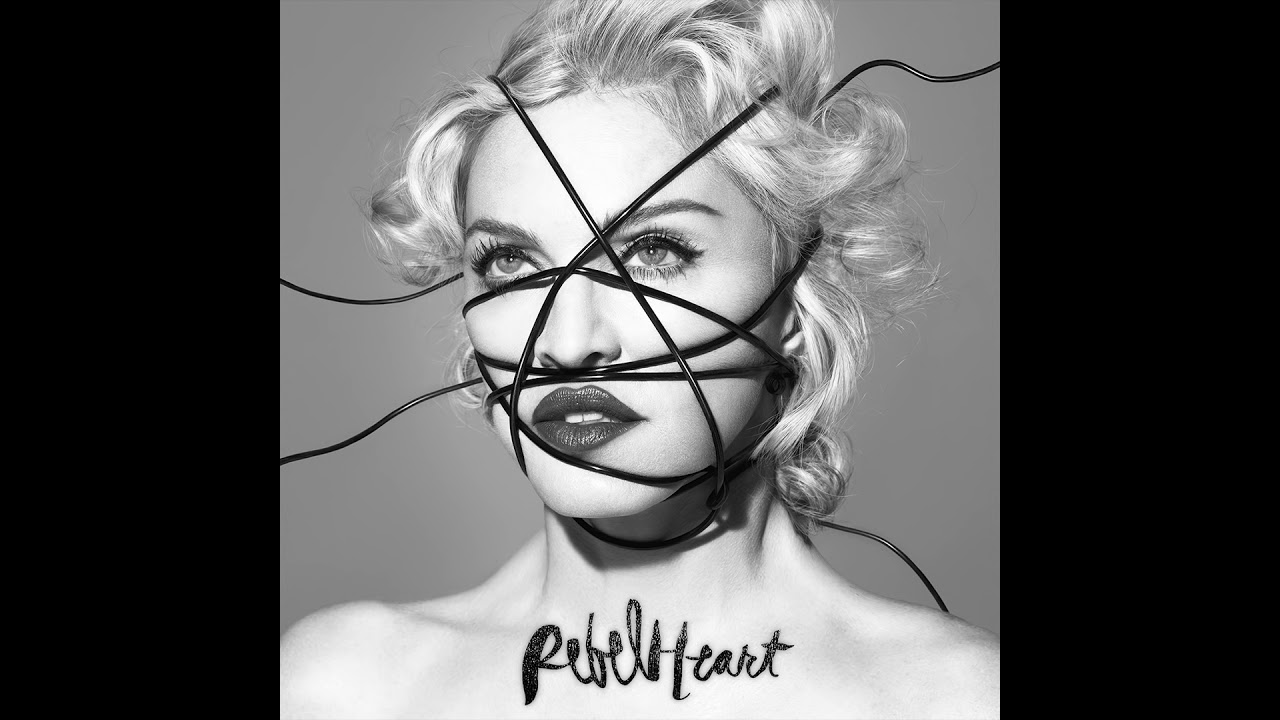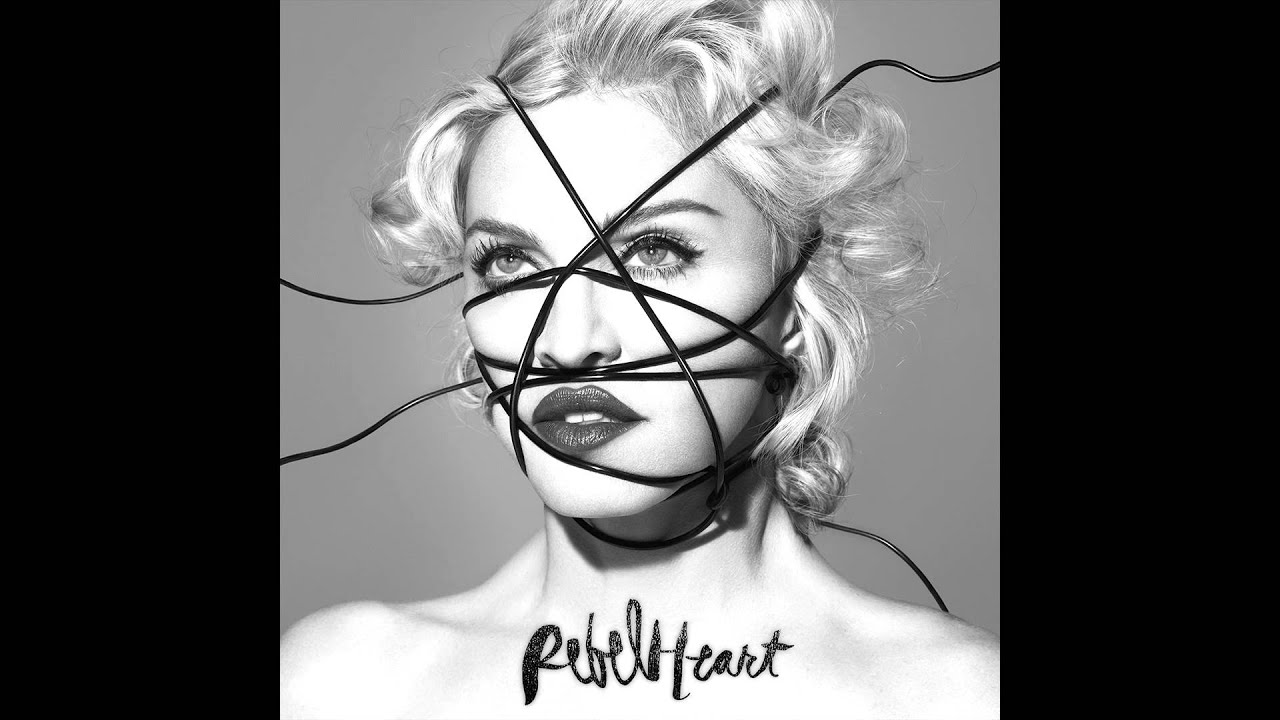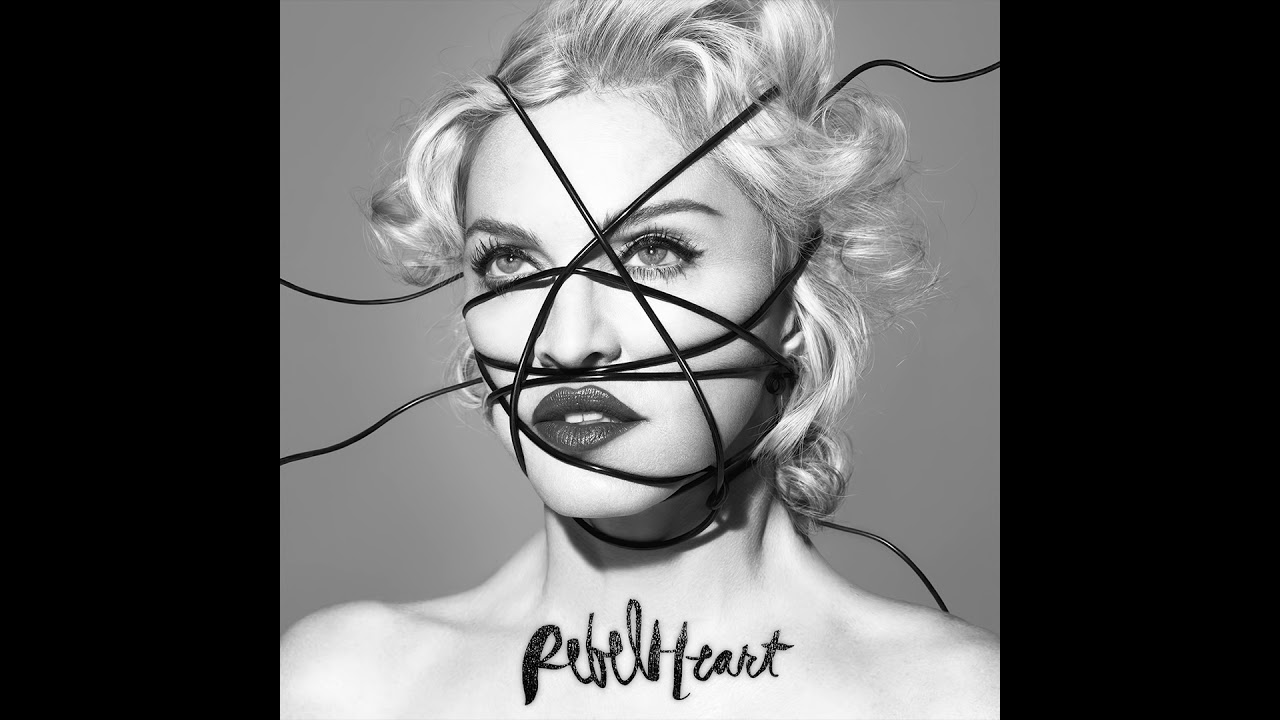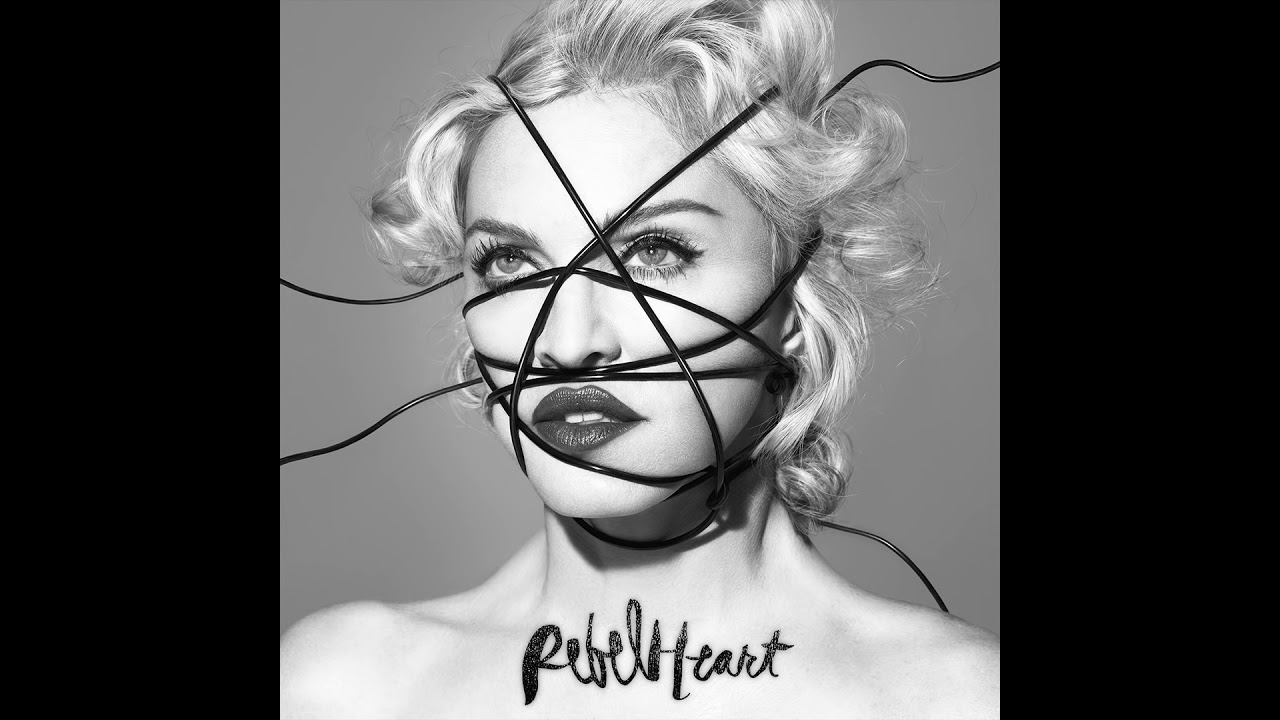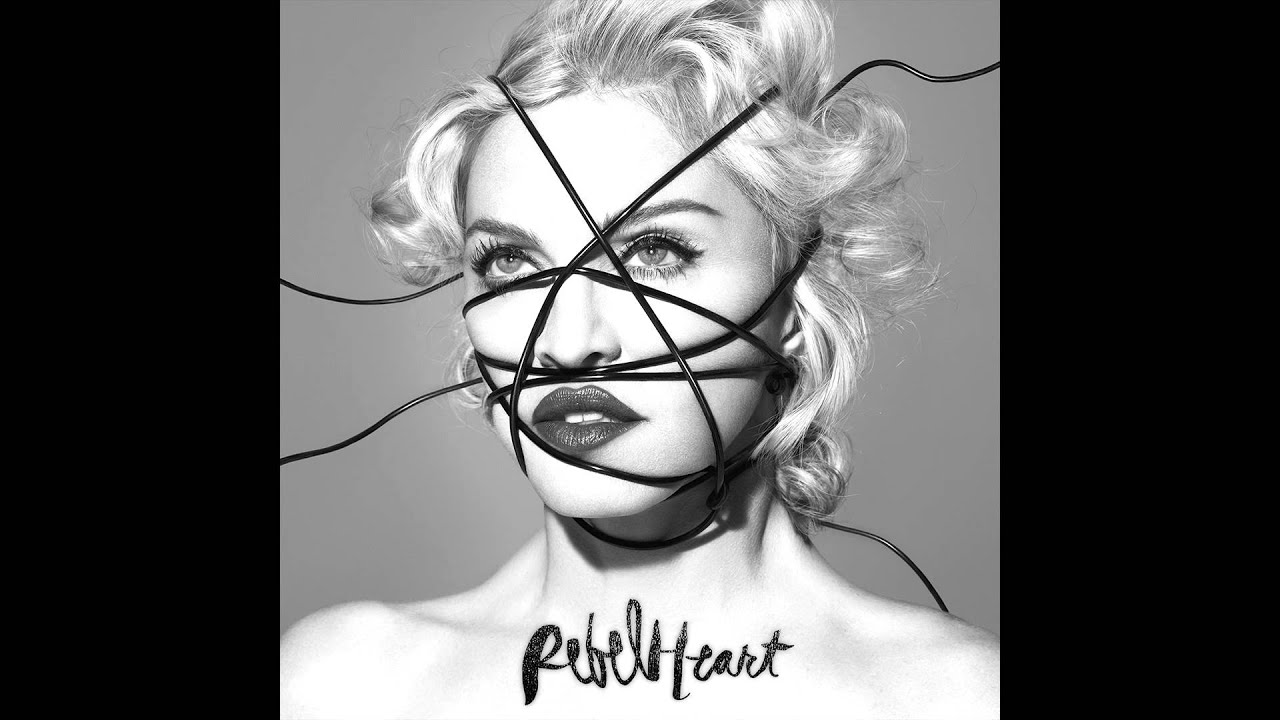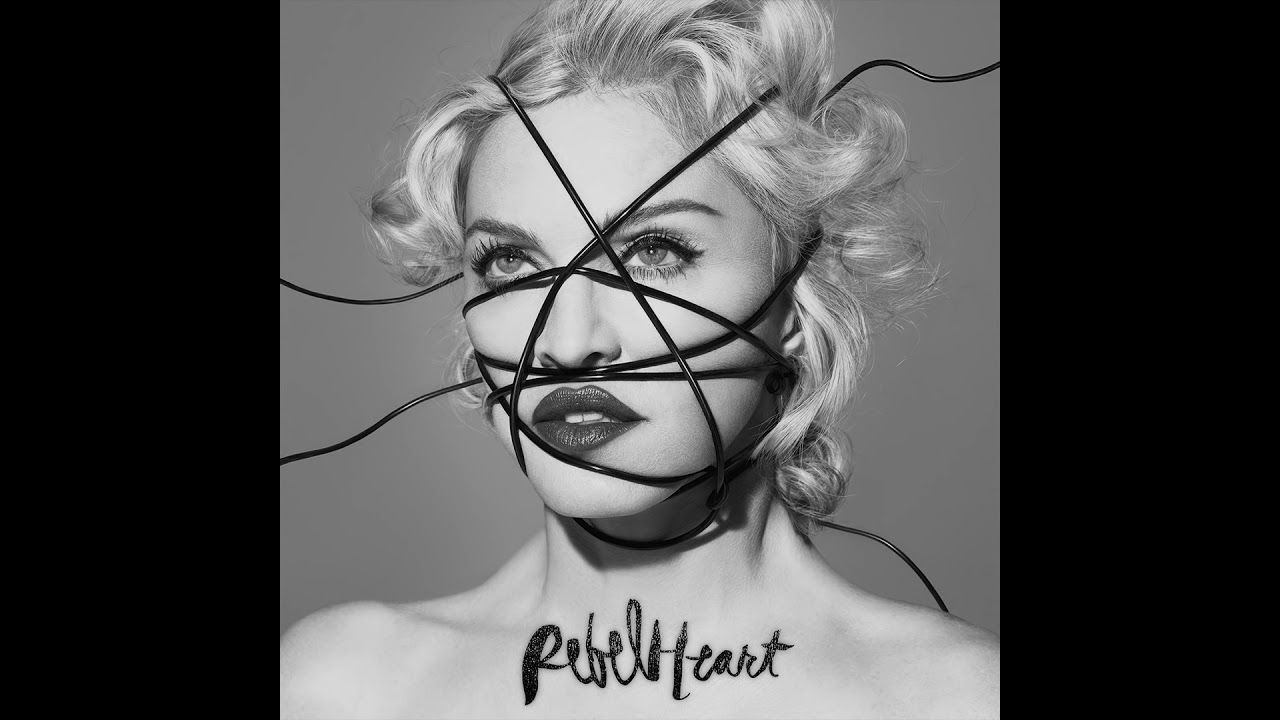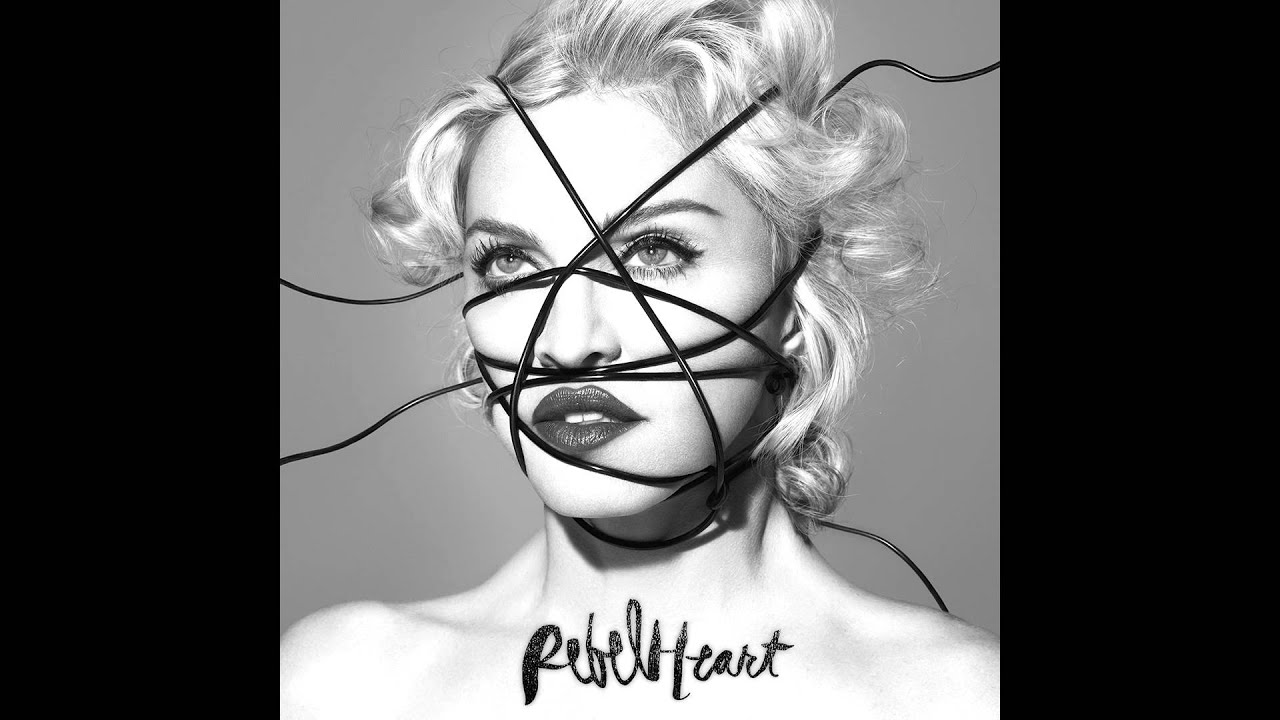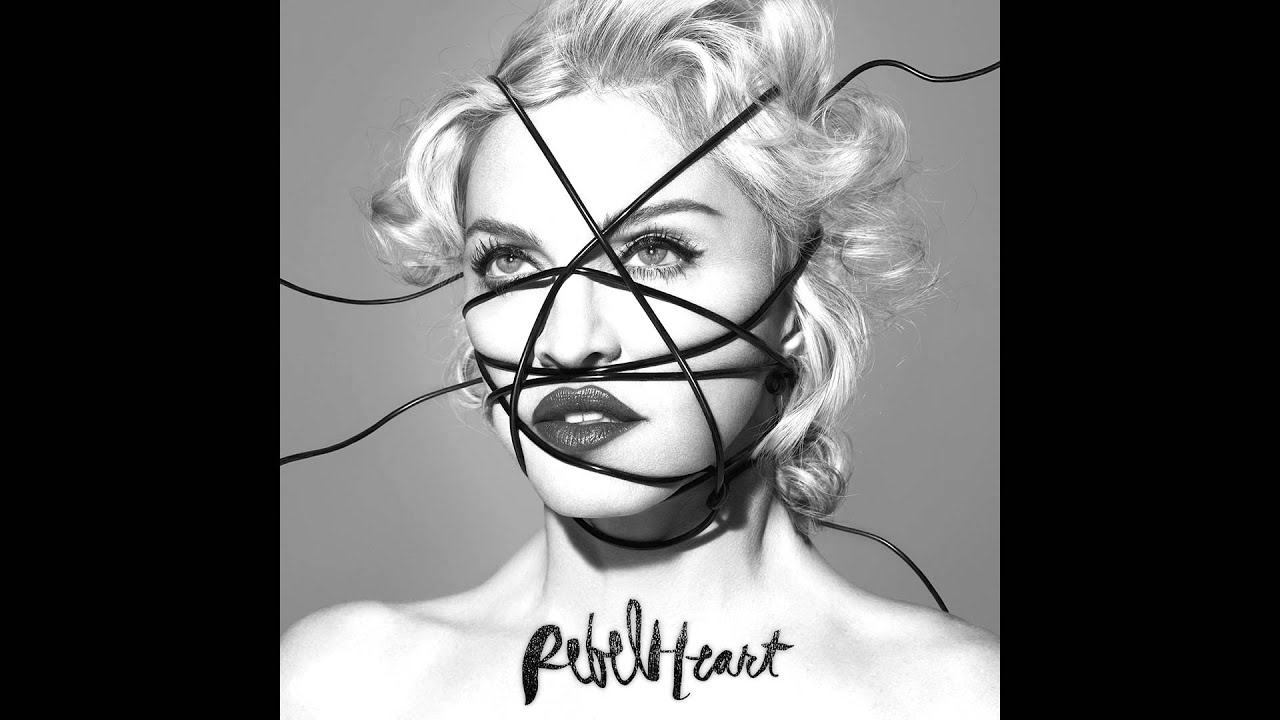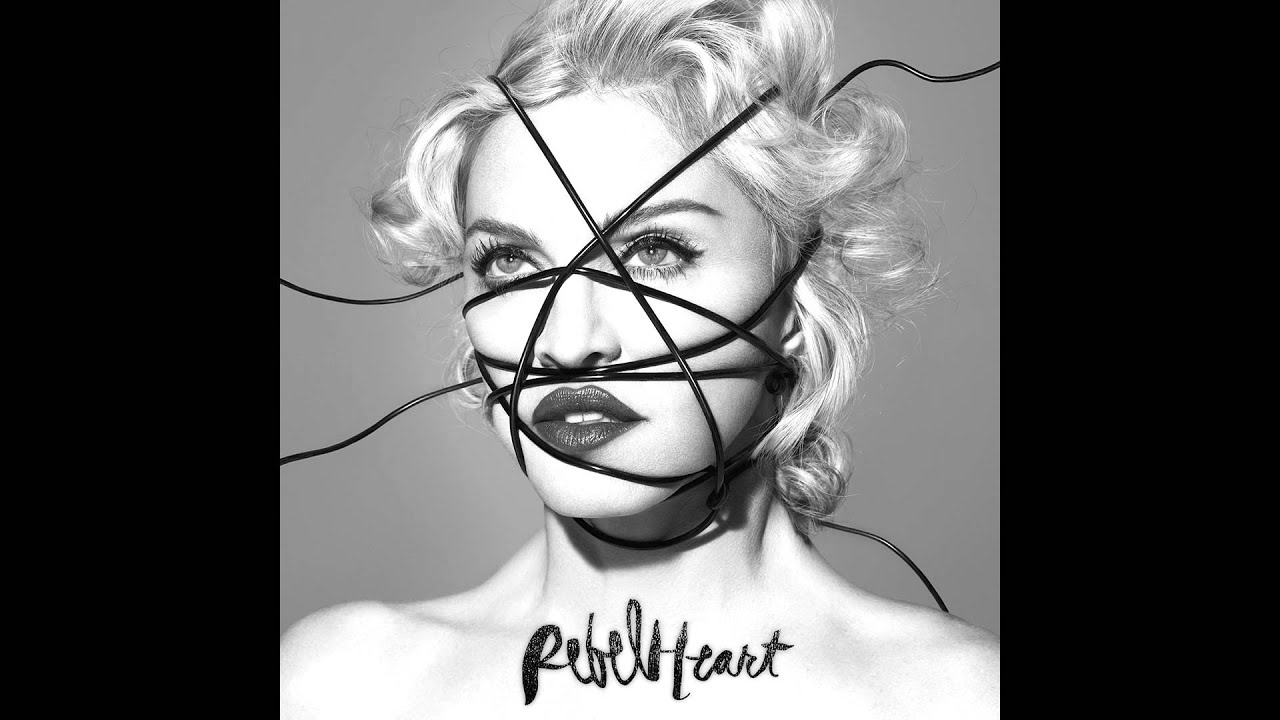Photo by Mert Alas & Marcus Piggott
Madonna’s 13th studio album has had an unfortunate start in life, with the impatient internet leaking most of its content in apparently embryonic forms way before its official release on March 9th. Additionally, the resounding story surrounding the tracks that have been properly released is a somewhat negative one; plummeting iTunes ratings, lopping from the Radio 1 playlists and sneers following her recent Grammy’s performance – where she paraded the stage, dressed as a bejewelled matador rather than obediently crooning from a stool.
The go-to criticism concerns her employment of a coterie of acclaimed, "of the moment" producers (including Diplo, Avicii, Billboard and Kanye West) to elevate her ‘brand’, but it’s baffling that this criticism should be so selectively applied. Surely every other mainstream pop artist is working in this way? Is there some cloaked ageism at work, or perhaps just disbelief that a 56 year old artist has anything of quality still to offer? It’s fair to say that her more celebrated records hang somewhat distantly in collective memory – Ray Of Light from 1998 containing her best, post 80s work – but maybe that’s about to change.
Rebel Heart tracks a left ventricle/right ventricle split between the spirit of a defiant, angry trailblazer, and a more insouciant, romantic soul. It’s a darker return to the club culture roots that spawned one of the most successful and iconic female music careers in living memory, and it seems – on some level – to face up to the missteps of her more recent releases.
If that is the mission it’s an in-depth undertaking, the full album contains nineteen tracks. Deep breath, here goes…
Living For Love
It makes clear sense to start the record with this track, even if, as we dig deeper it’s not the best of those on offer. It’s a rallying cry of an independent spirit that refuses to be broken and the most out and out club anthem on the record. ‘Living For Love’ gives the clearest, bell clanging message that the collective amity of the club is where M feels most at home. It’s that spirit that galvanised her musical mission in the first place and she returns to it staunchly here. You get the sense it’s all about the joyful communication of this statement rather than any kind of virtuosic performance, as the sheer heft of Diplo’s production relegates her voices to its reedier registers.
Devil Pray
‘Devil Pray’ sets out Rebel Heart‘s thematic tone of Madonna as a devoted disciple, drawn to a darker kind of prayer. It’s also the first moment on the album when her voice emerges clear and clean from the EDM scrum, over steady hand claps and guitar, whose country edge is reminiscent of ‘Don’t Tell Me’ from 2000’s Music and characteristic of Swedish producer Avicii’s own output. The refrain cuts to an intoned, warning list of narcotic distractions ("we could do drugs, and we could smoke weed and we could drink whiskey") before a pitched down voice joins in a plea for M’s soul to be saved. This is the first of many deft, warping, mood changes from acoustic to electro that populate the album – listen out for the imperfect waver of her voice on the word ‘astray’ in verse two. A precious little ghost in the machine.
Ghosttown
Canadian producer Billboard lays out a desolate sonic landscape of single organ chords and dusty beats for this you-and-me-against-the-world ballad. M’s voice is crisp and unfettered, save for the occasional auto-tuned trill that gives this the edge of an apocalyptic cri de coeur. 40 seconds in and a teasing, distortion filled pause can mean only one thing – a massive chorus about to drop – and this one does with a half time, heart thumping beat and repetitive round. You could imagine Rhianna or Lady Gaga singing the same chorus, but M, despite being a weaker singer, licks it in the emotional truth stakes, particularly on this more melancholy end of the spectrum. Singing with a tremulous tonality, her voice hangs in uncluttered space, the lyrics positioning her as the dark-glowing, guiding light. A brilliant, desperate and rousing anthem.
Unapologetic Bitch
The phrase that’s etched through and through Madonna like Blackpool rock. But this song is about calling out a rat bag ex-lover, rather than being an over-arching statement of staunch independence. Diplo uses every air horn in his artillery, morphing slide guitar into lasers and corralling a rasping dancehall groove. M spits rhythmic lyrics of the generic revenge-sass variety ("poppin’ bottles that you can’t even afford"), throwaway in comparison to the hooky tune itself. The refrain, "you never really knew how much you loved me till you lost me", is the killer nugget of this track, along with the drum break and squalling dub sirens in the final third. Wicked good.
Illuminati
The first of the Kanye produced cuts on the album features brittle hits, blips and a buzz-saw break that’s just a little more interesting than the verse; a patter list of the famous names that form the assumed new world order. M however, reckons it’s the beautiful freaks of the club that hold the power, not these celebrity cyphers; she’s interested in the sweat-slicked celestial bodies, ‘shining like illuminati.’ It’s scuzzy and repetitive with a danceable hook – but her voice is at its thinnest and the dynamics a little lacking. Despite all this, it does contain the great lyric, "It’s time to dance and turn this dark into something", which could be the album’s epigram.
Bitch I’m Madonna
Cooing opening notes are a misleadingly sweet introduction to what is actually a berserk slice of EDM that refuses to rest, rhythmic or sonically for more than 10 seconds at a time. M sings ‘I just wanna have fun tonight’ over ridiculous bpm, trilling with pitched up vocals that you’d be forgiven for thinking had bled from the hands of PC Music’s AG Cook. The beat slithers between a creaking boom-bap and a stuttering chorus rhyme of the cheekiest, playground wind-up variety. M demands ‘Who do you think you are?’ in a roar replete with riot grrrl rage before Nicki Minaj – in whom M seems to have found a kindred spirit – oozes a characteristically flawless verse. This track is the irreverent, batshit apex of the Madonna/Diplo collaboration – ending with the wry, doomy coda of a maniacal, metallic belly laugh.
Hold Tight
Shakira’s ‘Whenever, Wherever’ as seen through the murky lens of a lost generation. There are the same military beats – the carnival rat-a-tat – but the key is more minor and the sense of hope a little more distant. While again, the workaday "together we’re gonna last forever" lyric is less gripping than the song’s architecture, it’s still a galvanising anthem of shoulder-to-shoulder survival that’s collective and communal, rather than intimate and romantic. The chorus gallops euphorically over twinkling arpeggio, picked out by a Juno whistle reminiscent of Kate Bush’s ‘Running Up That Hill’.
Joan Of Arc
‘Joan Of Arc’ begins as an acoustic ballad, speaking plainly and plaintively of detachment and loneliness in the face of the press – "each time they write a hateful word / dragging my soul into the dirt / I wanna die". Left at this self-sorry tempo you’d be tempted to switch off, but the chorus does a 180 and picks up to a skippy, romantic melody that underscores M’s tears. It could be a Taylor Swift song and that’s a compliment, her lyrical echoes in simple poetics like, "I don’t wanna talk about it right now / even hearts made out of steel can break down." The chorus builds in warm revolutions over skittering drums and strings as M bolsters herself against the slings and arrows of her outrageous fortune. Is the Joan Of Arc metaphor a bit of a stretch? Yes. Is this the sweetest and catchiest song on the album thus far? Also yes.
Iconic
You might have heard mention of Mike Tyson featuring on Rebel Heart and here he is, sampled giving a rousing speech over rapturous applause, setting the tone of ambition, sweat and graft. ‘Iconic’ is a Ted-talk of well-worn, motivational encouragement ("if you don’t use your voice/someone else will speak for you instead") cloaked in a club anthem with M’s vocal echoing like the announcer in the ring. The pre-chorus is the memorable hook; a stomping rhythm to be sung en masse, with a high euphoric melody like a precocious, pre-recession club classic. The sonically sparse verse breaks down to machinic stabs and grinding electronic gears over the title mantra before Chicago’s Chance The Rapper has his moment to "shine like a beautiful star" on one of only three guest verses on the record. It’s all over in a flash though and makes less of an impression than M’s repurposing of the Twinkle Twinkle rhyme to hopefully intone ‘want to be a superstar / that’s exactly what you are."
Heartbreak City
No prizes for guessing what this one’s about. Lamenting piano chords support a lone vocal that drips with reverb as a tale of a broken love unfolds – "You split me down the middle / fucked me up a little." It’s the kind of baroque pop, dealing in love and death, that made Lana Del Rey so tantalising, but again, M attains the edge by being the voice of experience rather than doe eyed innocence. Her lyrical delivery is purposeful, hard – devastating in the cold detachment of clipped consonants. She’s angry but controlled, expressing in a deeper vocal register – a Bassey-esque bass. There’s staccato drums, dramatic male back up vocal and doomy piano that echoes DJ Shadow’s ‘Midnight In A Perfect World’. Breathy, exhausted, emotional.
Body Shop
Seemingly out of nowhere pops this ever so light, sunshiny sketch that could be a cut from Damon Albarn’s Mali Music. There’s warm, rolling, clapped percussion and fingers on strings with M delivering a gem of a verse, in a style that could not be further removed from either hard-hitting dancefloor belt or quivering electro-drama. The lyrics seem composed only to create a bubbling, breathy, percussive patter that feels improvised and loose but also totally integrated with the music around it. Important to note that this song is not about the ethical bath products brand – more like, love is a highway, M is a battered car and with some careful / dextrous repairs it will be possible to get back on the road. The chorus melody is pure, laidback jouissance and feels somehow like vintage Madonna. Also fun are the residues of her anglophile phase in the lyric that suggests "We could go on a bender." Nice.
Holy Water
Day turns to night and we’re firmly back in the club with M demanding ‘Bitch get off my pole" – it’s rich with Nicki vibes, without Nicki actually making a second appearance. Sex has always been one of M’s favourite subjects, particularly when it’s hand in daring hand with religion; here she performs a kind of erotic baptism while a Moroder-esque bass underscores her sermon. It’s one of many strong choruses that take you somewhere unexpected, in this case ecstatic moaning, arcade game music and ‘Ashes To Ashes’ style synths ricochet, pin-ball fashion. It’s the second cut that Kanye has had a hand in and I’d guess he’s partly responsible for the cheeky genius of inserting a sample from M’s own seminal ‘Vogue’ into the latter half of the track – it’s iconic stab of "strike a pose" setting up a rhythmic base for the similarly spoken refrain, "If you like it please confess / Bless yourself and genuflect." A cunning turn from the Holy Madonna and Baby Yeezus.
Inside Out
The holy metaphors continue in another enticing combination of dark, bare verse giving way to bittersweet chorus. Made with notable hip-hop producer and Kanye collaborator Mike Dean, there’s a near perfect matching of an underwater bassline to pick out the clear, processed call of her voice. These are the best tracks – when her vocal hangs, almost alone. In this context she sounds ageless and so familiar; you remember that crazy production is a necessary vessel but not always a match for the ubiquity of her iconic vocal. The track remains restrained, with piano chords and strings while M’s lyric demands a love based on "full disclosure" asking ‘let me love you from the inside out’ – a chorus that might be the most catching and anthemic of the album.
Wash All Over Me
The last song of the regular album track-list hits a note of resignation, albeit in a quietly grandiose manner. Through piano chords and a contemplative melody, M is figured as a stranger in a strange land, the world around her changing; you can almost picture her trudging in slow motion through experiential quicksand, probably wearing Balenciaga. Something unsettled lurks under the steady chords, fading up to a chattering, military beat as the chorus rouses – it has all the melancholy pleasures of ‘The Power Of Goodbye’ one of M’s finest moments, but it’s older, wiser and more accepting of endings. This is a beautiful vocal, pure for the most part, sparingly synthesised and buoyed by gospel backing. "If this is the end then let it come/ let it wash all over me," she sings – a still defiant anthem for days of luxuriant ennui.
Best Night [Deluxe Version]
This noirish booty call, dealing a more private, less showy erotica – opens with doomily seductive, 80s electro as she permits, "You can call me M tonight." There’s a touch of fellow Dancetaria regular Sade, particularly on the sultry chorus hook ("I’ll make this the best night of your life") which appears to be sung in some other person’s voice – with M recognisable on the tinny peaks of the harmonies. Later there are further call backs to her own classic catalogue, in this case it’s ‘Justify My Love’, whose "wanting / waiting" refrain creeps over a spoken word passage, squalling Indian flute and a pattering of drums. This time round she’s in control however, calling the shots rather than waiting for permission.
Veni Vedi Vici [Deluxe Version]
A dusky rap origin story with lyrics built around the titles of some of her greatest hits, "and when it came to sex, I knew I walked the Borderline / and when I struck a pose, all the gay boys lost their minds". A welcome, playful break from some of the more generic pop lyrics on the record. The chorus chimes over acoustic guitar with M singing ‘I came, I saw, I conquered’, sounding totally girlish and insouciant. The final guest verse comes courtesy of Nas – not always the most scintillating of rappers – but actually this bravura slice of his own turbulent biography is bang on, particularly against Diplo’s slightly (and aptly) nostalgic shotgun beats and euphoric, crunching horns that score the crescendo. The track swoops from this bombast back to the acoustic sweetness of M’s chorus – the least defensive and most personal feeling track on the record by far.
S.E.X [Deluxe Version]
Pure unadulterated filth with no room for the euphemisms rife in ‘Holy Water.’ This chatty, sassy, spoken word demands, "Tell me what you know about sex"; the subtext being that you know basically nothing. Everything is laid bare over twinkling, skittering bass, synth hits and string arpeggio. As it winds up, M reels off an S&M shopping list, the track ending with the slam of a dungeon door.
Messiah [Deluxe Version]
A final blast of witchy, alchemical drama to set you on your way, through the forest, into the desert, out into the night – thankfully with M to guide you. The orchestral underscore of flowing violins (sparsely used on this record so far) calls to mind the gravitas lent to ‘Papa Don’t Preach’ – particularly when married with that deeper, velvety tone that sometimes ekes from M’s throat. The keening chorus speaks of candle covered altars and necromancy, a love potion spell to a heart-beat drum.
Rebel Heart [Deluxe Version]
The last song on the album feels like the first to properly spring into aural life in an unapologetically major key. For all the dark defiance and isolation that has permeated the previous 18 tracks, the title song is epitomised by totally bright, upbeat guitar, violin scale and finger clicks. The song relates the story of its singer – who she was and how she became who she is – which is really the record’s underlying conceit. The desire to make the most contemporary sounding pop and mainstream dance music while quietly acknowledging your part in building the scene and popularising stylistics that are the foundation of current trends. In these lyrics – which are more auto-biographical and therefore more interesting – she accepts "hell yeah, this is me / right where I’m supposed to be," building to a very sweet, very chart, very chorus-y crescendo – a bit of pop magic dug, nonetheless, from the "depths of her rebel heart."


